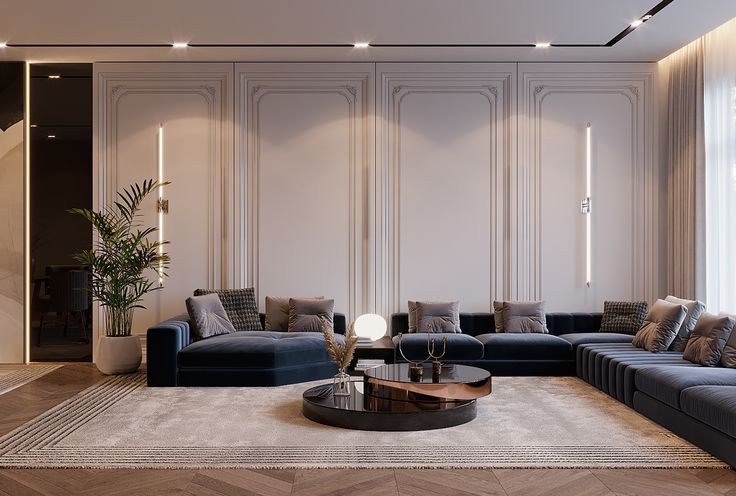In today’s market, wall panels such as WPC, fluted panels, charcoal, and PVC are all the rage. Everyone is talking about them, and for good reason—they look stunning. But, do you know the technical aspects of these panels? If your house is prone to moisture, which panel should you choose? Should you go for PVC, charcoal, or WPC? Before diving in, let’s explore the key points of each option, including where to buy them and their respective features.
Step 1: Understanding the Technical Aspects of Wall Panels
Before making any decisions, it’s essential to know the terminology used in the industry. Any wall treatment with widths of 1 or 2 feet is referred to as a “plank.” Panels under 1 foot are called “louvres,” and anything larger than 2 feet is classified as a “sheet.”
PVC Panels
PVC panels are commonly used for indoor spaces. These panels come in several quality options:
- Square Section Panels: These are brittle and should be avoided because they break easily under pressure.
- Circular Panels: Slightly more expensive but more durable with a higher density.
- New Generation PVC Panels: These are trending now because they come with better designs and color shades.
PVC panels are budget-friendly, easy to clean (just water is enough), and have a lifespan of 15+ years. The only caveat is they are not UV-resistant, which means they should not be used outdoors as their color fades and the material becomes brittle when exposed to sunlight.
WPC Louvers
WPC (Wood Plastic Composite) panels are available in a range of sizes and are much sturdier than PVC. These come in indoor and outdoor varieties. The maintenance of WPC panels is a bit more challenging compared to PVC, especially when cleaning their grooves. They last over 20 years and come in a wide range of shades (30+ options). However, WPC panels are more expensive than PVC and require more meticulous installation, often using a mix of adhesives.
Charcoal Panels
Charcoal panels, also water-resistant, are a higher-end choice. Not only do they filter air, but they also provide an acoustic benefit, absorbing sound. Charcoal panels are fire-retardant, don’t expand or contract, and are UV-protected, making them ideal for both indoor and outdoor spaces. They are the most expensive of the three but provide the best luxury finish. Charcoal panels last up to 20 years and are perfect for those who want high-end aesthetics.
Metal Panels
Metal panels are the most durable, easy to clean, and can be used for both indoor and outdoor applications. They are available in various sizes, such as 5 inches by 8 feet and 5 inches by 9.5 feet. These panels come in two grades: 202 (for indoor use) and 304 (for outdoor use). The installation process is slightly more involved, as it requires a proper paneling system and high-quality adhesive to ensure long-term durability.
Step 2: Design and Aesthetic Considerations
Now that we’ve covered the technical side, let’s talk design. The aesthetics of wall panels largely depend on the space they’re used in and the desired look. Charcoal panels give a luxurious and modern feel, while PVC panels offer a more affordable and functional solution. WPC panels strike a balance between luxury and affordability. Metal panels give a sleek, industrial look that works well in contemporary homes.
Choosing the Right Panel for Your Space
- For Renters: PVC panels are ideal as they are easy to install and remove without damaging the walls.
- For Luxurious Spaces: If you want a high-end finish, charcoal or metal panels are the way to go.
- For Moisture-Prone Areas: PVC and WPC panels are both water-resistant, making them perfect for bathrooms, kitchens, and basements.
- For Acoustic Requirements: Charcoal panels are the best choice because they help reduce noise levels and improve air quality.
Conclusion: Which Panel is Right for You?
Each type of panel has its own set of pros and cons. If you’re looking for an affordable, easy-to-maintain option, PVC panels are the way to go. If you want a balance between luxury and functionality, consider WPC panels. For a premium look and enhanced benefits like acoustic and air-filtering properties, charcoal panels are your best bet. Metal panels, on the other hand, are perfect for those looking for durability and a modern aesthetic.

